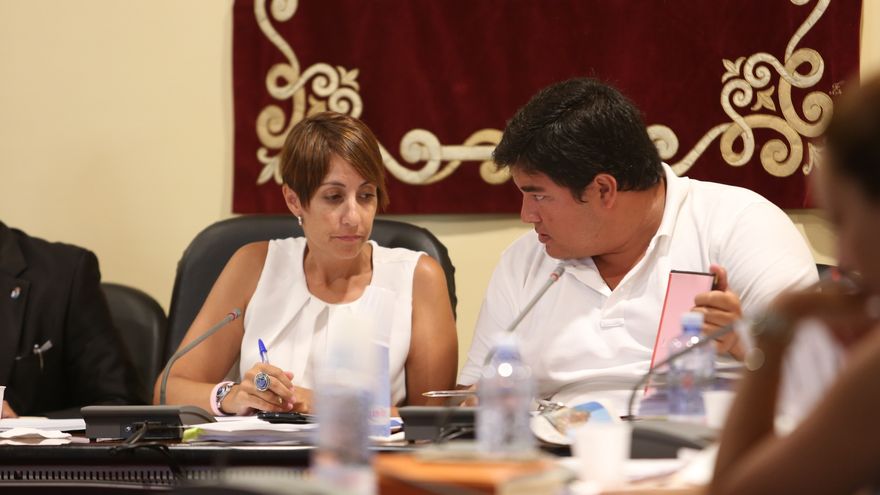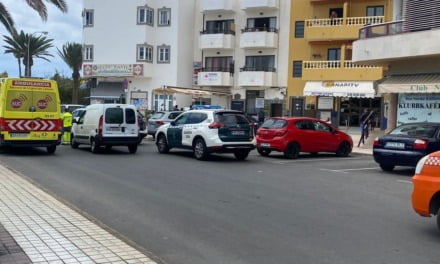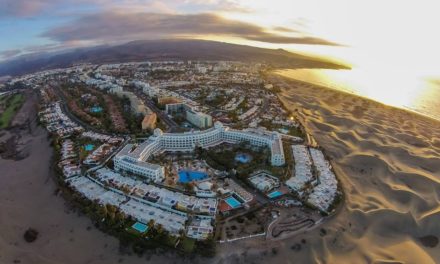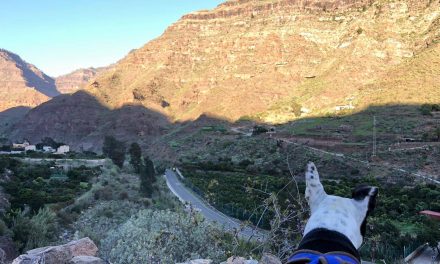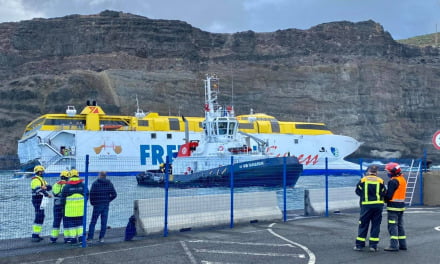The current serving mayor of Gran Canaria’s tourism hotspot of Mogán, Onalia Bueno (Ciuca, former PP), has been under judicial investigation for electoral corruption more than once. The current and ongoing scrutiny she is being subjected to, along with her right hand man, the lawyer and deputy mayor, Mencey Navarro, is related to repeated accusations of election rigging, vote buying and a string of alleged irregularities with the manner in which contracts, tenders and urban development permissions are processed throughout the municipality. Bueno and Navarro were arrested last September, along with their Social Services councillor Tania Alonso, following the testimony of various witnesses and an investigation that was first opened in 2015, based on their CIUCA party’s sudden rise to power and complaints from various disaffected people of the town.
Nevertheless, as happened with the last major case, following a four year investigation and 7 years of protracted legal wrangling, in which Bueno was a lead protagonist, this investigation seems to be in danger too of having stalled. Now, one of the complainants of the alleged electoral crimes committed by Bueno and her party in 2015 and 2019, has pleaded with the General Council of the Judiciary (CGPJ) for the Court of Instruction 3, that leads the current proceedings Cite.3549/2015, to declare as soon as possible, so that they may give their evidence, due to “pressures” to which he says he is now being subjected “by the environment of the mayor”.
 The complaint, made on February 22 by a repentant ex-collaborator of the Citizens for Change party (CIUCA), a local formation allied to the Canary Coalition on Gran Canaria, details that since the arrest of the mayor, her first deputy mayor and councilor Alonso on September 17, accused among other charges of electoral corruption, complainants and witnesses have been summoned to testify up to three times, and “all three [hearings] have been suspended without any justification.”
The complaint, made on February 22 by a repentant ex-collaborator of the Citizens for Change party (CIUCA), a local formation allied to the Canary Coalition on Gran Canaria, details that since the arrest of the mayor, her first deputy mayor and councilor Alonso on September 17, accused among other charges of electoral corruption, complainants and witnesses have been summoned to testify up to three times, and “all three [hearings] have been suspended without any justification.”
In October, the complainant warned the Guardia Civil that following those arrests he had already been “subjected to pressure, one of the councilors of the government group arriving to offer me work and money so that I could change my version and accuse another person who has nothing to do with it.”. The witness says he is now worried and complains to the Judiciary that he has “indications that some of the defendants could be” buying “witnesses to modify their version of events to favour the mayor.”
Cases and court actions stuck in a judicial tangle is not a new thing on Gran Canaria. But when it comes to matters of a certain political type, it seems more so. Bueno herself is no stranger to bringing litigation that fails to get much past the first hearing, as has happened on numerous occasions, and with expert council from Mency Navarro, this latest case must just seem like more of the same, administrative stalling tactics rather than actual matters of substance.
The Góndola case, which unsuccessfully investigated alleged corruption in the PP of Mogán (2003-2007), saw charges of a similar nature levied towards Bueno, suspected electoral corruption, which eventually had to be dropped, having failed to build enough of a case, and with up to eleven judges in seven years having been assigned to lead the investigation in The Court of Instruction 1 of San Bartolomé de Tirajana. It was a long sordid affair with much damning evidence having never made it in to public awareness. There were many who felt that unseen hands were at work to try to contain the potentially damaging investigation which once again revolved around election fraud, urban planning and contract tenders, among many other accusations. At the centre of all of it was Bueno, who continues to claim her innocence.
Sources within the Guardia Civil this time, however, express quiet confidence over the amount of electoral corruption evidence they have collected. Only time will tell what this investigation is able to show, and then Mogán will learn much of the colours of its future political landscape. Will it be more of the same, or are we due a seismic shift in the political life of Gran Canarias sunny southwest coastal communities? What’s bueno for the Goose, is bueno for the Gander, but perhaps no tan bueno for Mogán.
Editor’s Comment:There is much that appears rotten in the town hall of Mogán. In a municipality that is likely made up of a foreign resident majority population, there are no foreigner’s voices in Mogán town hall, an administration run by the daughter of a previous mayor, who took over from the son of another previous mayor. There has never been any outreach to encourage political involvement or engagement from the non-Spanish residents, There have been repeated claims made of irregularities at the ballot box, particularly complaints from foreigner residents who have been either prevented from voting, or suggest that they were persuaded to hand their ballot over to serving members of the council, rather than deposit their vote into the ballot box.Anyone who has ever engaged in trying to have a political voice in the municipality will perhaps attest to the sometimes vindictive backdoor nepotism that appears to get things done in Gran Canaria’s second most visited tourism destination. Many who have going concerns and businesses in Mogán know that your friendships within the town hall can mean the difference between success or not.
Many citizens report having been offered simple cash sums of between 50€ and 100€ simply to vote one way or another, for either a daughter of a previous mayor or a son of a previous mayor. Phone calls recorded, or conversations leaked, appear to show clear intent to manipulate postal voting and other electoral processes. Others are accused of rallying large numbers of voters, both legitimate and otherwise, in exchange for suggested favours, lucrative contracts, building permissions, employment or any one of a number of other supposed benefits. All of it at the expense of the Mogán tax payers, and more so, if later scrutiny brings precarious administrative results or even court cases, as it is the tax payers who then must pay the legal fees to defend these alleged actions, and pay to have them remedied. It seems there is never time to do things correctly first time, but always time to do them over.
None of this has yet been proven in a court of law. The Mayor’s sudden arrest last September at least shows there is a significant enough amount of smoke for the investigating authorities to clearly suspect there must also be a fire.
Meanwhile Bueno pretends that her “humanitarian” tendencies have provoked the wrath of Spain’s central government, trying to suggest that this is all a conspiracy because she dared to speak out to “defend” the rights of migrants in Arguineguín. Leading to a groundswell of xenophobia and even paving the way for Spain’s Ultra Right leaders to find solidarity in the streets, no matter that much of that solidarity was imported from other places.
At the same time Bueno seems to have had no twinge of conscience organising buses to dump migrants on the streets of the capitol, Las Palmas, or marching with anti-migrant protestors or desperately trying to issue fines to hoteliers who have temporarily assisted with migrant accommodation in the face of a total collapse in tourism.
The Mogán saga will rumble on forward, meanwhile no one has yet come up with a plan to “Save Tourism” nor any viable alternatives to Spain’s slow progress accommodating migrant arrivals in the deplorable camps that have been set up for the purpose, but perhaps one day they will make a Telenovela out of the story, and it will simply be called “La Alcaldesa!”

